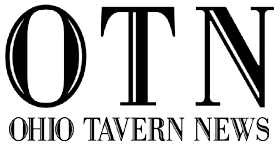Essay: Health, Safety Should Be Factors In Alcohol Availability
- posted in: Legally Speaking
“The Ubiquitous Availability of Alcohol: Freedom Isn’t Free” so writes Nathan Sabo, winner of the Center for Alcohol Policy’s 14th annual essay contest. The national essay contest is intended to foster debate, analysis and examination of alcohol policy.
To enter the contest, participants were asked to provide thoughtful responses to this question: “After Prohibition, states generally issued licenses for on-premise and off-premise sale of alcohol. Drinking was thus largely confined to bars, restaurants, the home, and private clubs. Alcohol is now regularly offered in places like salons, grocery stores, clothing stores, and galleries. Is this trend towards ubiquitous availability of alcohol a good one? And is there a new regulatory regime needed to address this trend?”
Sabo’s winning essay provides an analysis on how health and safety should be at the forefront when considering alcohol regulation and availability. “Overall, the more ubiquitous alcohol becomes, the more it increases the density of alcohol outlets, increases consumption of alcohol, and increases alcohol-related problems,” Sabo wrote.
One section of the essay details “Relationship of Alcohol Policy on Adverse and Favorable Consequences.” Modern day alcohol policies are generally in place to protect public health and alcohol availability is considered a public health issue. “Control measures can be used to limit the consumption of alcohol thus preventing alcohol related problems,” the essay states.
The essay acknowledges laws and policies governing the use and consumption of alcohol are well researched and have provided positive health and safety outcomes.
The author notes that the desired freedom to purchase alcohol anywhere and at any time, which seems to now be an important part of the U.S. lifestyle, comes with its own set of consequences. Excessive alcohol consumption does put human health and safety at risk. The key is regulation which balances “individuals rights to consume alcohol while maximizing the health and safety of the population.”
In doing so, Sabo focuses on three areas: 1) relationship between availability of alcohol and violent behavior; 2) relationship between alcohol availability and human health; and 3) adverse and positive consequences subsequent of alcohol policy or lack thereof.
Sabo sets forth, “the more ubiquitous alcohol becomes, the more it increases the density of alcohol outlets, increases consumption of alcohol, and increases alcohol-related problems. Although there may be positive effects from alcohol consumption, the current study suggests that such positive effects are far outweighed by the adverse effects of alcohol ubiquity. This raises the question of whether a new regulatory regime is needed to address these trends.”
The essay concludes: “Security and well-being are inclined to be threatened with increased alcohol outlet density and alcohol consumption. Although alcohol use may pose favorable effects, extreme caution should be observed before, during, and after consumption to preserve everyone’s welfare. Policies in place do the job they were intended for but are not always enforced or complied with. Therefore, it may be the individual’s right to freedom to engage in the usage of alcohol however they should be aware of, prepared, and willing to accept the subsequent consequences of their actions.”
Sabo’s winning essay may be viewed at www.centerforalcoholpolicy.org/wp-content/uploads/2023/01/The-Ubiquitous-Availability-of-Alcohol.pdf.
The purpose of the Center for Alcohol Policy “is to educate policymakers, regulators and the public about alcohol, its uniqueness and its regulation. By conducting sound research and implementing initiatives that will maintain the appropriate state-based regulation of alcohol, the Center promotes safe and responsible consumption of alcohol, fights underage drinking and drunk driving and informs key entities and the public about the effects of alcohol consumption.”
Dave Raber is a partner with the Columbus law firm of Lumpe, Raber & Evans and general counsel for the Wholesale Beer & Wine Association of Ohio.

